Ertach Kernow - Celebration of Cornish Music
Celebration of Cornish Music is this weeks theme with Christmas and New Year relaxation periods over it’s time to get back to work. I had the chance to reread a Celtic themed novel based on Irish folklore by Caiseal Mór. Also, his splendid story Carolan's Concerto based on the life of Turlough O’Carolan the famed 18th century blind travelling Irish harper. Considered by many over the centuries to be Ireland's national composer it’s wonderful that Thurlough’s music is still being played today and perhaps one of the most well-known is called Carolan's Concerto.
Many watching the World Cup would have seen and heard Welsh fans proudly singing their national anthem Hen Wlad Fy Nhadau as well as the hugely inspiring ‘Yma o Hyd’. These two songs have encouraged interest in the Welsh language helping illustrate how powerful music is in identifying a nation, especially when sung by large patriotic crowds in their own national language.
The Breton national anthem ‘Bro Gozh ma Zadoù’ shares the translated English name Old Land of our Fathers and the music with Wales and Cornwall’s ‘Bro Goth agan Tasow’. This anthem is played at major sporting events, cultural events and on the Breton 5 radio station at the end of the days broadcasting. Less well known and sung less often is our own Cornish national anthem Bro Goth agan Tasow, which should be far better acknowledged and promoted. Although The Song of the Western Men, better known as Trelawny has now been translated into Kernewek this Cornish language version is seldom heard. It would be good if Cornish organisations and societies promoted our own national anthem more and perhaps encouraging Trelawny to be sung in Kernewek.
A great success story was the creation some three years ago of the Cornish National Music Archive. This set about collecting information about music and dance cultures in Cornwall and its diasporic communities. It is open for everybody to contribute to, learn from and to use. Organisers decided content would include ‘music that is, or has been: popular in Cornwall, impactful in Cornwall, written in Cornwall, written about Cornwall, inspired by Cornwall – thus aiming to include individuals, traditions and compositions that express, reflect and celebrate Cornwall and our distinctive identity.’
As I have written previously, a growing interest and participation in historic and contemporary Cornish music and dance has been encouraged through Cornwall becoming increasingly alive to its Celtic roots. Europe’s Framework Convention for the Protection of National Minorities signed by the UK government in February 1995, came into force in May 1998. The UK Government officially recognised the Cornish as a national minority on 24th April 2014, affording the Cornish the same status as the Scots, Welsh and Irish. These have helped strengthen interest in Cornish culture, encouraging learning and speaking the Cornish language. Growth in Cornish cultural interests included singing traditional and new songs by a younger generation who are voicing stronger identification with Cornwall as a nation, providing vigorous support for its wider interests.’
To find out more about Cornish identity and the Framework Convention for the Protection of National Minorities click HERE
Whilst many older folk enjoy the wonderful English language compositions by Harry Glasson especially, there is also a growing trend to use the Cornish language in songs. Happily, some of Harry’s songs are now translated into Kernewek. Probably the best-known artist is Gwenno Saunders, especially since her Mercury Award nomination for ‘Tresor’ which followed on from her earlier successful album of Cornish songs ‘Le Kov’. Along with traditional choirs and groups who sing songs translated into Kernewek numerous younger artists are now composing and singing songs in the Cornish language. An illustration was the Celtic Congress Cornwall contribution to the online International Celtic Congress during 2021. Well-known artists including The Rowan Tree, Teylu, Brother Sea, Rosie Crow, Ben Harris, Minko and Will Keating entertained viewers from across all the Celtic nations singing their songs in Kernewek.
Of course, this is not entirely new, and past artists who helped the resurgence of the Cornish language through song must not be forgotten. Collecting, preserving and sharing the music and people who have contributed to Cornwall’s music scene over all time is an integral part of the Cornish National Music Archive’s work. Although impossible to include even a small number of people here we must remember one in particular. This is the late great Brenda Wooton who not only performed here in Cornwall but across Europe and the world singing Cornish songs in English and Kernewek. Although many older Cornish folk will remember her with much affection, perhaps younger people and those new to Cornwall who enjoy our cultural music may not know or appreciate the importance of her work. Brenda died relatively young at age 66 in 1994 leaving a massive legacy in numerous albums. Recently unheard works have been published by her daughter Sue Ellery-Hill including her biography 'Brenda: For the Love of Cornwall - the Life and Times of Brenda Wootton, Cornwall's First Lady of Song'. In 2021 a new songbook with two CD’s was published of Brenda singing in Kernewek, with songs written for Brenda by Richard Gendall. Through her daughter’s work Brenda is still contributing to Cornwall’s language through song many years after her death. Brenda was honoured with a bardship of Gorsedh Kernow in 1977, taking the bardic name Gwylan Gwavas (Seagull of Newlyn). As a Radio Cornwall presenter Brenda hosted the show Sunday Best until 1990 and in 2017 listeners voted her Cornwall's best loved 'music legend'. She was awarded a Blue Plaque which was erected on the walls of the Count House at Botallack near St Just, the site of her Pipers Folk Club in July 2021.
The latest Cornish National Music Archive project looks at the music of Cornwall’s Clay Country. This is a huge undertaking in itself, covering a wide geographic area in central Cornwall as well as through time and range of music. The music covers male voice choirs, church choirs, music and song composers, singers and individual performers, brass bands from numerous villages and general music and dance within local clay country folk traditions. An activity based on old traditions is the work of Dr Merv and Alison Davey who share the history, music and dance of Harry and Carrie, itinerant clay country entertainers from around 1900. A number of postcards were produced showing this couple, with the identity of Harry and Carrie now unknown. Merv and Alison’s re-enactments are an important part of keeping this aspect of clay country folk activity alive. Besides this Merv has written extensively about other aspects of Cornish folk songs, music and dance. Perhaps he is best known as a past Grand Bard of Gorsedh Kernow and as a piper, often seen leading events including St Piran’s parades. An expert in playing bagpipes Merv kindly produced a video on Cornish Bagpipes for the online Newquay St Piran’s Festival in 2021. This short 12-minute video, still available on the Association for Cornish Heritage YouTube Channel, is regularly in the monthly top ten monthly videos having been viewed some 1200 times. Bagpipes although lesser known and appreciated are an important aspect of Cornish Celtic music.
Time to mention a younger contemporary musician Richard Trethewey who contributes a huge amount to Cornish music. Besides working as a music therapist for Children’s Hospice South West Little Harbour and privately for clients across Cornwall including primary schools, Richard performs with; The Rowan Tree, Brother Sea, Didjan, Cousin Jack’s Theatre Group as well as his own musical projects as a solo artist. He really is an accomplished composer, musician and songwriter with compositions and songs in Kernewek. Richard has taken part in numerous festivals including with the Rowan Tree at the Pan Celtic festival in 2017, as part of Cousin Jack's Theatre with The Mousehole Cat including in 2019 on tour to the USA performing in Wisconsin and Minnesota. A regular at the Lowender Peran Celtic Festival, Richard also appeared in the Celtic Congress Cornwall entertainment videos in 2021 with The Rowen Tree and Kris Lannen in Brother Sea. Later works have made contributions to Clay Country music including the song ‘The Clayworker’s Strike’ of 1913’. Richard was created a bard of Gorsedh Kernow in 2020 for the promotion of Kernow through music and during lockdown completed and produced a book entitled ‘Story Singer, Song and Tune Book’. This collection of 36 songs written since 2004 in the Cornish tradition and include in Richard’s own words; tales of smuggling, fortunes won, eccentric characters from Cornwall's past, industrial strikes, songs of fishermen , Cornish emigration, love and loss.
Click the images (Right) to see Merv Davey's talk on Cornish bagpipes and to link to Richard Trethewey's website
I would love to think that over the coming years the interest in Cornish themed music, especially in Kernewek grows and that more people begin to sing both traditional and new songs in our own language. There are plenty of resources to allow people to learn both Trelawny and our national anthem Bro Goth Agan Tasow in Kernewek. Perhaps more Cornish folk will gradually follow the tradition and example of our Welsh cousins in raising the roof in song to our own national anthem.
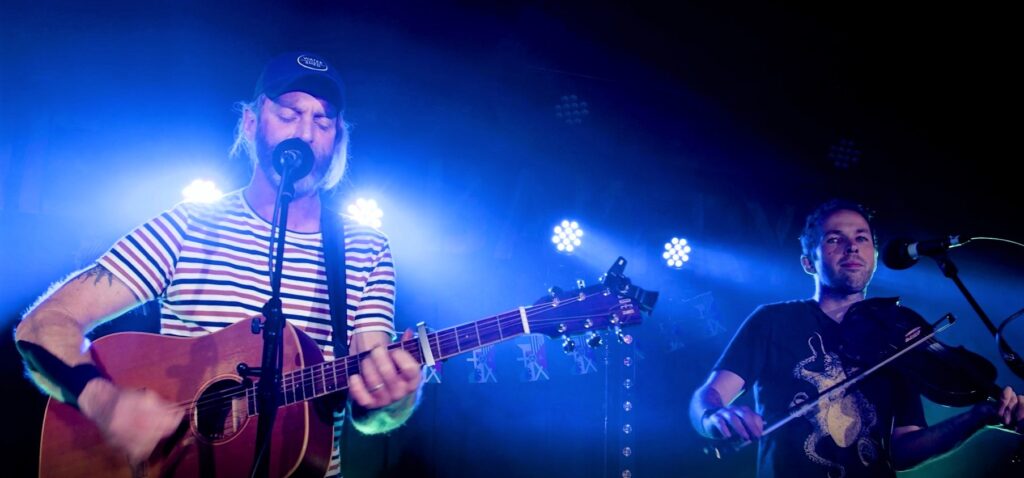
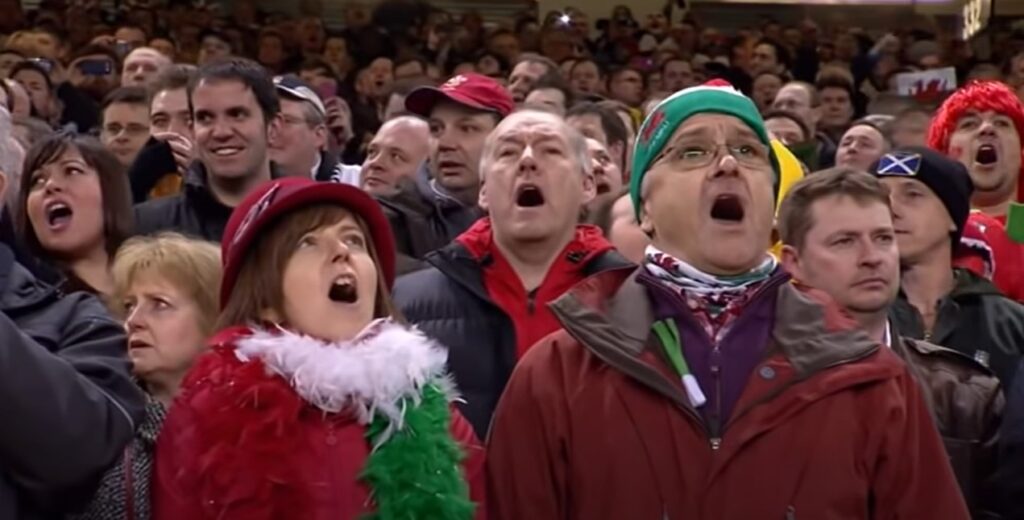
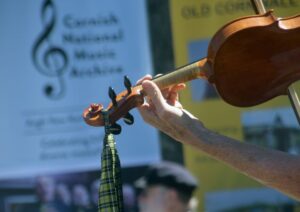
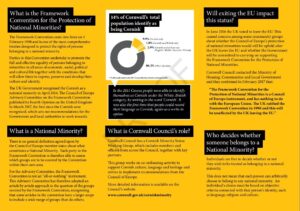

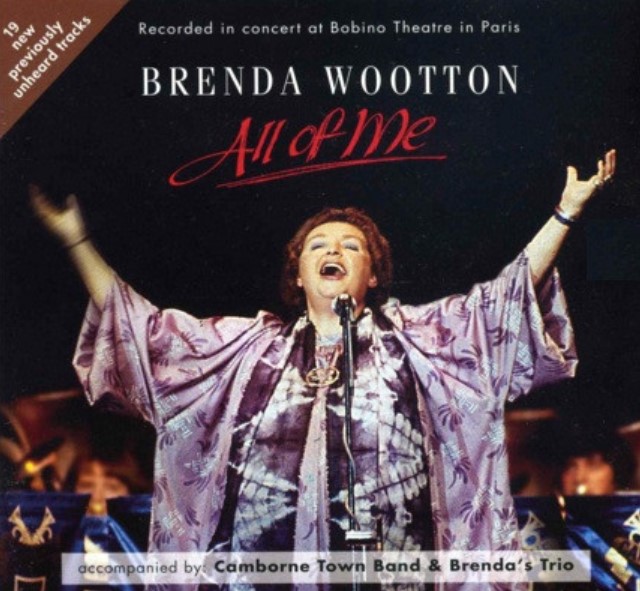
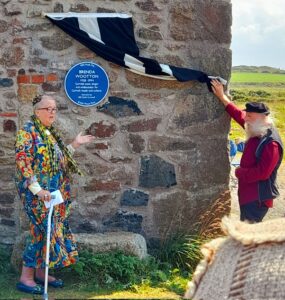
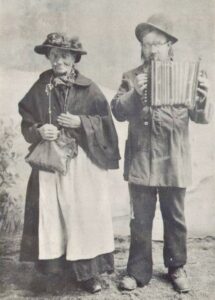
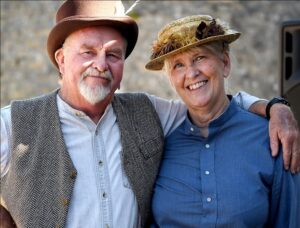
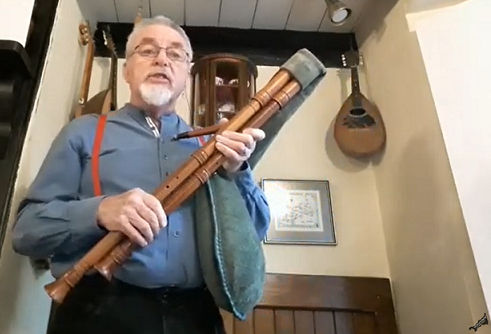
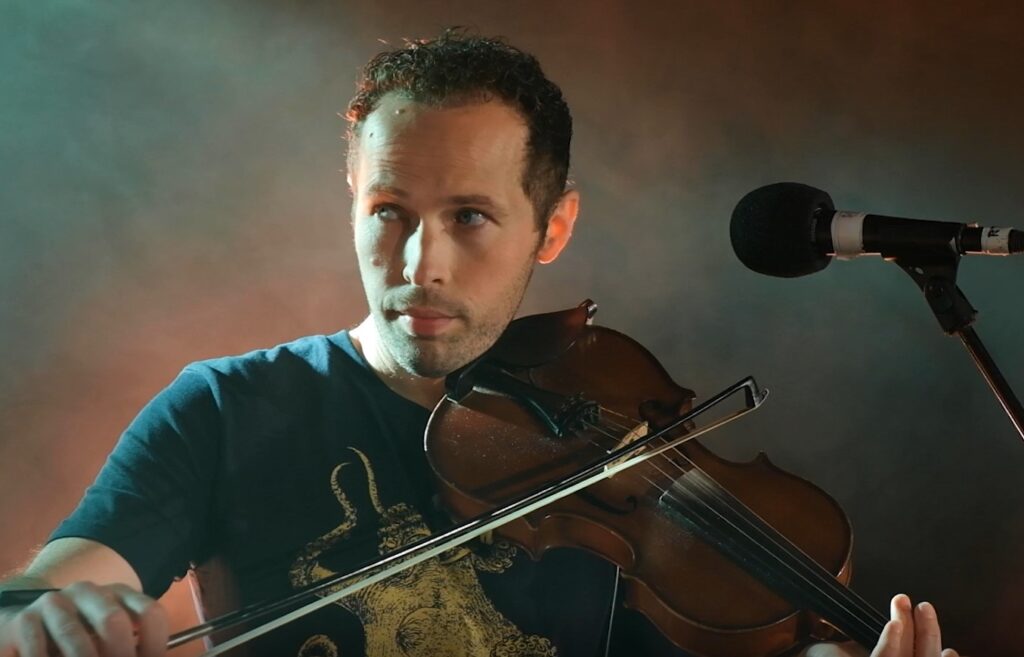
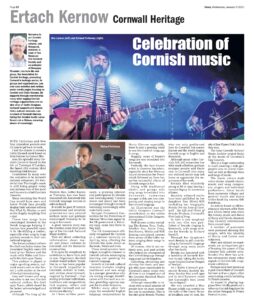
![Ertach Kernow - 11.11.2023 [27] Ertach Kernow - Celebrating Cornish Music](https://www.cornwallheritage.com/wp-content/uploads/2023/01/Ertach-Kernow-11.11.2023-27-254x300.jpg)
![[133] Ertach Kernow Heritage Column - 11th January 2023 - Cornish Cultural Film & Talk Ertach Kernow Heritage Column - 11th January 2023 - Cornish Cultural Film & Talk](https://www.cornwallheritage.com/wp-content/uploads/2023/01/133-Ertach-Kernow-Heritage-Column-11th-January-2023-Cornish-Cultural-Film-Talk-300x286.jpg)